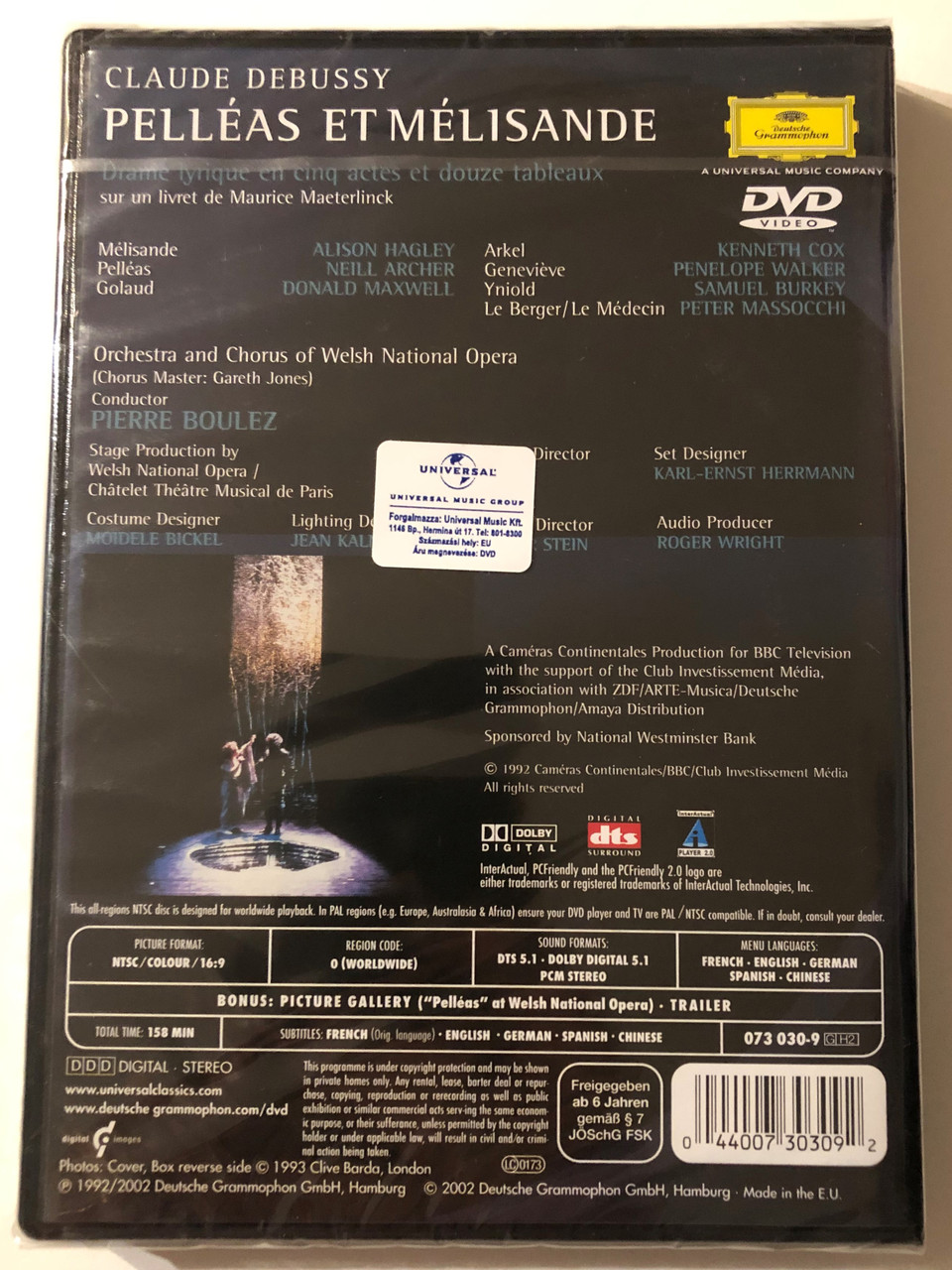Description
Debussy: Pelléas et Mélisande - PELLEAS AND MÉLISANDE 2 DVD Set / German gramophone / Tyric drama in five acts and twelve scenes / Orchestra and Chorus of Welsh National Opera / Conductor: PIERRE BOULEZ / Chatelet Musical Theater of Paris / DVD
Format: NTSC
Run time: 158 Minutes
UPC: 044007303092
- Aspect Ratio : 1.33:1
- Is Discontinued By Manufacturer : Yes
- MPAA rating : Unrated (Not Rated)
- Product Dimensions : 7.75 x 5.75 x 0.53 inches; 2.82 Ounces
- Director : Peter Stein
- Media Format : Multiple Formats, DTS Surround Sound, Subtitled, Color, NTSC
- Run time : 2 hours and 38 minutes
- Release date : October 29, 2002
- Actors : Alison Hagley, Neill Archer, Donald Maxwell, Kenneth Cox, Penelope Walker
- Dubbed: : French, English, Spanish
- Subtitles: : Chinese, French, English, German, Spanish
- Studio : Deutsche Grammophon
- Number of discs : 2
Pelléas et Mélisande (Pelléas and Mélisande) is an opera in five acts with music by Claude Debussy. The French libretto was adapted from Maurice Maeterlinck's symbolist play of the same name. It premiered at the Salle Favart in Paris by the Opéra-Comique on 30 April 1902; Jean Périer was Pelléas and Mary Garden was Mélisande, conducted by André Messager, who was instrumental in getting the Opéra-Comique to stage the work. The only opera Debussy ever completed, it is considered a landmark in 20th-century music.
The plot concerns a love triangle. Prince Golaud finds Mélisande, a mysterious young woman, lost in a forest. He marries her and brings her back to the castle of his grandfather, King Arkel of Allemonde. Here Mélisande becomes increasingly attached to Golaud's younger half-brother Pelléas, arousing Golaud's jealousy. Golaud goes to excessive lengths to find out the truth about Pelléas and Mélisande's relationship, even forcing his own child, Yniold, to spy on the couple. Pelléas decides to leave the castle but arranges to meet Mélisande one last time and the two finally confess their love for one another. Golaud, who has been eavesdropping, rushes out and kills Pelléas. Mélisande dies shortly after, having given birth to a daughter, with Golaud still begging her to tell him “the truth.”
Despite its initial controversy, Pelléas et Mélisande has remained regularly staged and recorded throughout the 20th- and into the 21st-century.
























